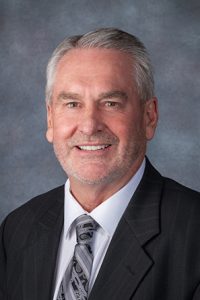Prohibition on DEI programs, offices considered
The Education Committee considered a measure Feb. 13 that would prohibit the use of public funds for diversity, equity and inclusion offices and programs at the state’s public colleges and universities.

LB1330, introduced by Glenvil Sen. Dave Murman, would bar any public postsecondary educational institution from requiring staff to participate in DEI programs or to spend public funds on any such program.
The bill defines a DEI program as one that requires employees to participate in or attend a training, orientation, workshop, therapy session or similar activity that addresses:
● structures, systems, relations of power, privilege or subordination based on race, sex, color, gender, ethnicity, gender identity or sexual orientation;
● methods to identify, dismantle or oppose any such structure, system, relation of power, privilege or subordination;
● differential treatment or benefit based on race, sex, color, gender, ethnicity, gender identity or sexual orientation; or
● a variety of theories including unconscious or implicit bias, cultural appropriation, allyship, systemic oppression, ethnocentrism, structural racism or inequity, social justice, gender identity or racial or sexual privilege.
Additionally, the bill would allow a public postsecondary institution employee to bring action against the institution and seek injunctive relief if required to participate in a DEI program or training.
Murman said the University of Nebraska has faced budget shortfalls recently, resulting in significant cuts to academic degree programs and departments, such as theater at the University of Nebraska at Kearney. Eliminating all funding to DEI programs and offices would save money and could prevent the elimination of additional academic programs, he said.
“No doubt some hard decisions are going to have to be made, but the good news is today we have a partial solution [in] ending funding to the DEI departments,” Murman said.
Speaking on behalf of Nebraska Taxpayers for Freedom, Doug Kagan testified in support of the proposal. DEI programs are exclusionary, he said, because they hinder diversity of viewpoints and political beliefs — especially conservative ones.
“Instead of encouraging a cooperative atmosphere of togetherness, [DEI] teaches people to exclude those who do not share their perspectives on diversity and other issues,” Kagan said.
Ethan Friedman, a freshman at the University of Nebraska-Lincoln, also spoke in favor of LB1330. He expressed support for diversity on campus but also raised concerns that DEI programs stifle the exchange of ideas and narratives among students and faculty.
“Education should be about free thought and promoting a marketplace of ideas, not about getting individuals to believe ideas without such debate and discussion,” Friedman said.
Ricki Barber, representing the Lincoln Branch NAACP, testified in opposition to the measure. He said the bill’s passage could draw scrutiny and negative media attention to the state’s flagship university while also hurting its ability to recruit athletes and remain competitive in sports.
“When we evaluate LB1330 through an athletic lens, we should remind ourselves that the transfer portal is a real thing,” Barber said. “Our Black athletes, in particular, are watching.”
Also testifying in opposition was Regina Werum, a sociology professor at UNL who spoke on her own behalf. The bill likely would violate the Americans with Disabilities Act, she said, and the Nebraska Constitution, which delegates university governance to the board of regents and not the Legislature.
Additionally, Werum said, the bill could impact the University’s ability to grow enrollment and serve diverse groups of students if faculty and staff are unable to understand those students.
UNL student Vivianne Clark testified against LB1330. Originally from Ohio, Clark said one of the major reasons she chose to attend UNL was her positive experience with the Office of Academic Success and Intercultural Services, or OASIS, and the diversity office. Both have helped to create a welcoming and united campus culture, she said.
“It can be easy to feel lost at a big school, especially if your identity is overlooked or devalued,” Clark said. “Our campus actively benefits from funds dedicated to OASIS and the Office of Diversity and Inclusion because they make people feel seen.”
The committee took no immediate action on LB1330.

